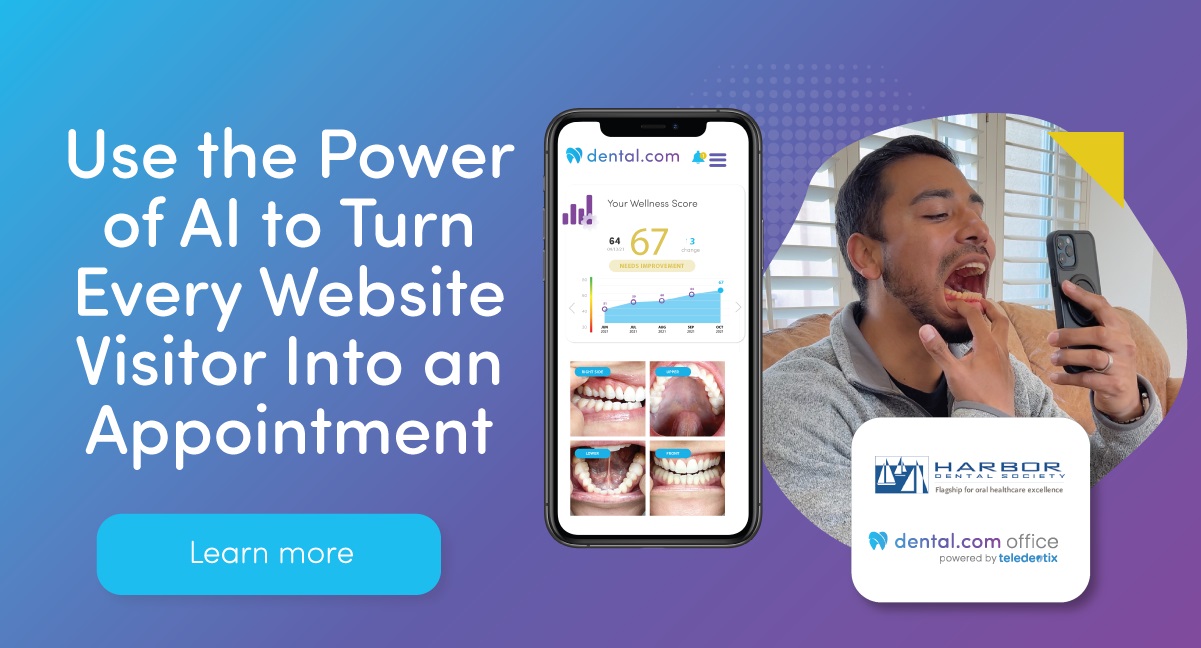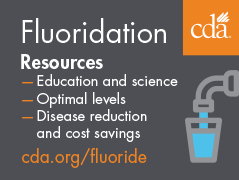Tuesday, Jul 15, 2025

Stop Panicking About AI: Here's What Dental Professionals Really Need to Know
Your social media feed is probably flooded with dramatic predictions about artificial intelligence. "AI Will Eliminate Millions of Jobs!" "Robots Are Coming for Healthcare Workers!" "The Future of Work Is Here!" And if you're lying awake wondering whether your dental career is about to become obsolete, well, you're not alone.
The panic is understandable. Recent studies, including Microsoft's comprehensive analysis of jobs being transformed by AI, paint a picture of widespread workplace disruption. Suddenly, everyone from hygienists to front office managers is questioning their job security.
But here's what the sensational headlines aren't telling you: dentistry operates in a fundamentally different reality than the industries making those scary predictions.
You're not working in an assembly line. You're not processing data in a corporate cubicle. You're treating real humans with real problems that require real expertise. The nuanced clinical decisions you make every day, the way you calm an anxious child, the split second judgment calls during procedures aren't getting automated anytime soon.
So before you start updating your resume or considering a career change, let's separate the AI facts from the fiction specifically for dental professionals.
The Truth About Job Displacement in Dentistry
What's Actually Getting Automated
When tech analysts talk about AI replacing jobs, they're usually referring to highly repetitive, predictable tasks. Think data entry, basic customer service scripts, or simple scheduling functions. In dental practices, this translates to specific administrative functions, not entire job categories.
Your dental AI receptionist might handle routine appointment bookings and answer frequently asked questions, but it's not performing oral surgery or providing treatment recommendations. The automation happening in dentistry is more like getting a very efficient assistant than losing your livelihood.
Consider Annie AI as an example. It excels at managing phone calls, scheduling appointments, and handling basic patient inquiries. What it doesn't do is replace the human judgment required for complex patient interactions or clinical decision making.
Where Human Expertise Remains Essential
The core of dental work stays firmly in human hands. Diagnosing complex conditions requires years of training and clinical experience that no algorithm can replicate. When a patient presents with unusual symptoms or multiple complicating factors, you're drawing on knowledge that goes far beyond what any current AI system can process.
Patient management is another area where humans excel. The nervous patient who needs extra reassurance, the elderly patient with mobility concerns, the child who's having their first dental visit, these situations demand empathy, adaptability, and intuitive communication skills that AI tools simply cannot match.
Even in administrative areas where AI is making inroads, human oversight remains crucial. Complex insurance issues, unique scheduling challenges, and patient complaints still require the problem solving abilities that only experienced staff can provide.
How Smart Practices Are Using AI
Enhancing Efficiency Without Eliminating Jobs
Forward thinking dental practices aren't using AI to eliminate positions, they're using it to make their existing teams more effective. Instead of spending hours on phone calls about appointment availability, front desk staff can focus on patient care and complex administrative tasks.
This shift allows practices to improve their dental practice marketing efforts, enhance patient relationships, and tackle the kinds of strategic challenges that actually grow a business.
The most successful implementations treat AI as a productivity multiplier rather than a replacement strategy. Staff members find themselves freed from repetitive tasks and able to focus on work that genuinely requires human skills and judgment.
Improving Patient Experience Through Technology
Modern patients expect efficient, responsive service. When AI handles routine communications seamlessly, patients get faster responses and more consistent information. This improves satisfaction without patients feeling like they're interacting with impersonal technology.
The key is implementation that feels natural. Patients should experience better service, not obvious automation. When done correctly, AI becomes invisible to patients while making operations significantly smoother for the practice.
Addressing Real Practice Pain Points
Every dental practice deals with predictable challenges: missed appointments, insurance verification delays, after hours inquiries, and routine follow up communications. These are perfect candidates for AI assistance because they're repetitive, rule based, and don't require clinical expertise.
By automating these functions, practices can maintain better operational efficiency while ensuring their human staff focuses on tasks that genuinely benefit from human insight and expertise.
What Dental Professionals Should Actually Worry About
Practices That Ignore Efficiency Improvements
The real threat isn't AI taking your job, it's competitors who use AI effectively to provide better patient service while you're still handling everything manually. Practices that embrace appropriate automation will likely outperform those that resist all technological improvements.
This doesn't mean rushing to implement every new AI tool. It means thoughtfully adopting technologies that solve real problems and improve patient care. Understanding current dental marketing trends can help practices stay competitive.
Poor Implementation Strategies
The practices that struggle with AI are usually trying to automate the wrong things or expecting technology to fix fundamental operational problems. AI amplifies existing strengths and weaknesses if your current systems are chaotic, adding AI will just create more sophisticated chaos.
Successful AI implementation starts with clear processes and realistic expectations. Teams that understand AI's limitations tend to implement it more effectively than those expecting miraculous transformations.
The Skills That Matter More Than Ever
Clinical Expertise and Continuous Learning
As routine tasks become automated, your clinical skills become more valuable, not less. Patients will always need expert diagnosis, skilled treatment, and professional guidance for complex dental health decisions.
Staying current with continuing education, new treatment modalities, and evolving patient care standards becomes increasingly important as the administrative burden decreases and clinical work takes center stage.
Communication and Relationship Building
The human connection remains irreplaceable in healthcare. Your ability to explain complex procedures, address patient concerns, and build trust becomes a key differentiator as technology handles more routine interactions.
Practices that excel at patient communication and relationship building will thrive regardless of technological changes because patients value providers who make them feel heard, understood, and cared for.
Adaptability and Strategic Thinking
The dental professionals who succeed in an AI enhanced environment will be those who can thoughtfully evaluate new technologies, implement appropriate solutions, and adapt their workflows to take advantage of efficiency improvements.
This means developing comfort with change and maintaining curiosity about how new tools might improve patient care or practice operations.
Making Smart Decisions About AI in Your Practice
Start With Clear Problem Identification
Rather than implementing AI for its own sake, identify specific challenges in your practice that technology might address. Are you missing calls? Struggling with appointment scheduling? Dealing with repetitive patient inquiries?
Successful AI implementation focuses on solving real problems rather than chasing technological trends.
Maintain Human Oversight
Even the most sophisticated AI systems require human supervision. Your team should always retain the ability to override automated decisions, especially when they involve patient care or practice operations.
The goal is augmenting human capabilities, not replacing human judgment. Staff members should feel empowered to intervene when AI solutions don't match the specific needs of a situation.
Measure Results and Adjust
Like any practice improvement, AI implementation should be measured against concrete outcomes. Are patients happier? Is your team more efficient? Are you capturing more appointments?
If the technology isn't delivering measurable improvements, it may not be the right solution for your practice or may need adjustment in how it's being implemented.
The Real Future of AI in Dentistry
Integration, Not Replacement
The future of dental AI isn't about robots performing procedures or software making clinical decisions. It's about intelligent systems handling routine tasks so dental professionals can focus on what they do best: providing expert patient care.
This integration will likely become so seamless that practices won't think of themselves as "using AI" ; they'll simply have more efficient operations and better patient service.
Enhanced Patient Care Through Efficiency
As administrative burdens decrease, dental professionals will have more time and energy for patient interaction, continuing education, and practice improvement. This could actually lead to higher quality care and job satisfaction, not job displacement.
Understanding developments like AI's impact on dental SEO helps practices stay visible to patients who increasingly expect modern, efficient service.
Evolving Roles, Not Eliminated Positions
Rather than eliminating jobs, AI is more likely to evolve existing roles. Front office staff might spend less time on routine calls and more time on patient education and practice marketing. Hygienists might have more time for patient counseling and preventive care discussions.
The key is viewing these changes as opportunities for professional growth rather than threats to job security.
What This Means for Your Career
The dental professionals thriving five years from now will be those who learned to work effectively with appropriate technologies while maintaining focus on excellent patient care.
Your clinical expertise, patient relationships, and professional judgment remain your most valuable assets. AI can support these strengths by handling routine tasks more efficiently, but it cannot replicate the complex problem solving and human connection that define quality dental care.
Rather than fearing technological change, consider how strategic implementation of AI tools might free you to focus more on the aspects of dentistry that drew you to the profession in the first place: helping patients, solving complex clinical challenges, and building meaningful professional relationships.
FAQs
What should I do if my employer wants to implement AI? View it as an opportunity to focus on higher value work. Ask questions about training, implementation timeline, and how your role might evolve. Most dental AI implementations aim to enhance staff capabilities rather than eliminate positions.
Will AI make dental school less valuable? Absolutely not. Clinical training, diagnostic skills, and patient management expertise become more valuable as routine tasks become automated. Your professional education provides knowledge that no current AI system can replicate.
How quickly is AI changing dental practices? Implementation varies widely. Some practices are already using basic AI for phone management and scheduling, while others haven't adopted any AI tools. The changes are generally gradual and focused on specific administrative functions.
What if I'm not comfortable with technology? Modern dental AI is designed to be user friendly, often requiring minimal technical knowledge. Most systems integrate with existing practice management software and don't require staff to become technology experts.
Should I learn about AI to protect my job? Understanding AI capabilities and limitations can help you make informed decisions about implementation in your practice. However, your clinical skills and patient care abilities remain your primary professional assets.







